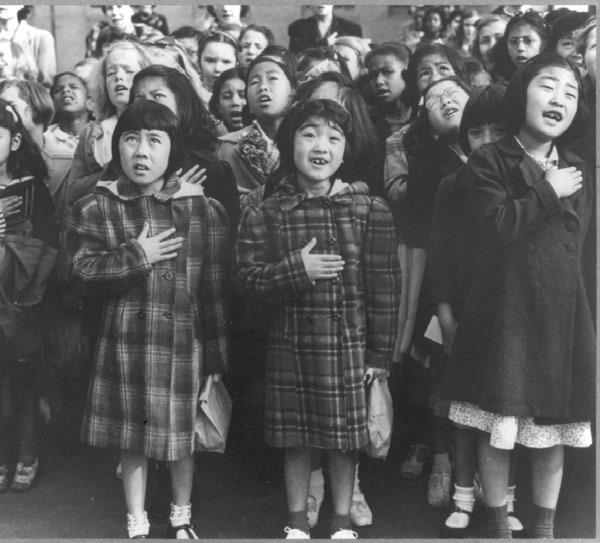
Yet people not born in the United States can still obtain citizenship. It is, however, a more complicated process.
It's Automatic
A child born outside the United States still is considered a citizen if at the time of birth:
Both parents are U.S. citizens and at least one parent lived in the United States before the child's birth. For example, if a child was born in Argentina, but both parents were U.S. citizens when he was born and his mother lived in the United States before his birth, then the child is a U.S. citizen.
Only one parent is a U.S. citizen and that parent lived in this country for at least five years before the child's birth, two of which were after age 14. So, if a child's father was the only parent with U.S. citizenship and he had lived in the United States the required amount of time before the child's birth, the child would be a U.S. citizen.
The Green Light
Someone born outside the United States (or outside a U.S. territory such as Guam or Puerto Rico) whose parents are not U.S. citizens must become a legal permanent resident before applying for citizenship. This is often called having a "green card." The most common ways to get legal permanent residency are:
✔ A close relative (parent, adult child, spouse, or sibling) who is a U.S. citizen or permanent resident applies for, or sponsors, the person.
✔ An American employer applies for the person because the person has the skills and education for a job that the employer wants to fill but for which he or she cannot find any Americans able and available.
Esta historia es de la edición May/June 2023 de Cobblestone American History Magazine for Kids.
Comience su prueba gratuita de Magzter GOLD de 7 días para acceder a miles de historias premium seleccionadas y a más de 9,000 revistas y periódicos.
Ya eres suscriptor ? Conectar
Esta historia es de la edición May/June 2023 de Cobblestone American History Magazine for Kids.
Comience su prueba gratuita de Magzter GOLD de 7 días para acceder a miles de historias premium seleccionadas y a más de 9,000 revistas y periódicos.
Ya eres suscriptor? Conectar
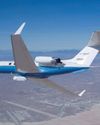
Eye in the Sky
An interview with Joe Piotrowski
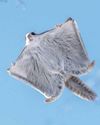
Airborne Animals
Humans have taken to the skies in balloons, gliders, and airplanes-but we're not alone among the clouds. Animals of all sorts have evolved to harness wind power.
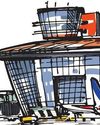
TAKING OFF
The Wright brothers expected airplanes to “take off,” but even they might be amazed at the way the airline industry has become big business. In the past, it was expensive to send something by plane.

GROWTH OF AN INDUSTRY
After their historic flight at Kitty Hawk in 1903, Wilbur and Orville Wright returned to Dayton, Ohio. They spent the next few years making adjustments and building additional versions of their powered aircraft in their bicycle shop.
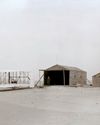
WHY KITTY HAWK?
The Wright brothers searched carefully for the best place to test their gliders and flying machines. Their main concern was for good, steady winds. But they also hoped to find a remote location to allow them to perform tests away from the public eye.
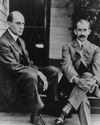
Two Brothers From Ohio
Most people do not realize that the Wright brothers—Wilbur, born in 1867, and Orville, born in 1871—performed various scientific experiments before inventing their aircraft. For as long as anyone in their hometown of Dayton, Ohio, could remember, the Wright boys had worked on mechanical projects.
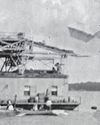
A Helping Hand
May 6, 1896. A group of people who had gathered beside the Potomac River, just south of the U.S. capital, grew quiet. Then, it erupted in cheers as a small, unmanned aircraft took to the skies and flew for more than half a mile. The flight came seven years before the Wright brothers’ first manned, powered flight. The inventor of the aircraft was Dr. Samuel Pierpont Langley.
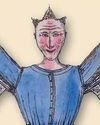
THE IDEA MEN
People dreamed of flying thousands of years before the Wright brothers found success near Kitty Hawk, North Carolina. These dreamers, such as Leonardo da Vinci, studied birds flying and imagined how humans might do the same—if only they had wings. Other men developed a more hands-on approach to the topic. Early inventors made wings of cloth, glue, and feathers and tied these creations to their arms in an attempt to imitate nature.
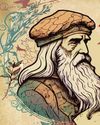
Da Vinci's 4 Designs
Have you ever wondered how a bird flies? Leonardo da Vinci (1452–1519) did. He thought that understanding how a bird flies would provide the key to human flight. So, what did da Vinci learn from birds?
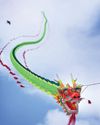
Silken Wings
Seven hundred years before the Wright brothers began experimenting with human flight, the Chinese had already mastered its secrets—with kites.